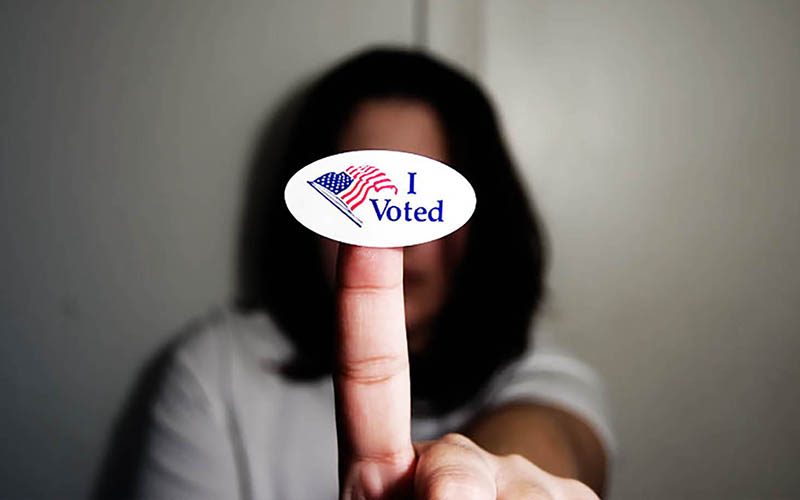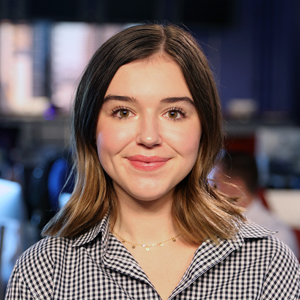
Arizona is one of four states with presidential primaries Tuesday, and Secretary of State Katie Hobbs said in-person voting would proceed, despite concerns about coronavirus. While some states are delaying their primaries, Hobbs said poll workers will take extra precautions and there is no guarantee there will be a safer time down the road. (Photo by jamelah e./Creative Commons)
TEMPE – The Democratic presidential primary will be held Tuesday as scheduled, despite the COVID-19 pandemic that has driven some other states to cancel in-person voting, Arizona Secretary of State Katie Hobbs said in a statement Monday.
The announcement comes days after the Centers for Disease Control and Prevention recommended canceling or postponing in-person gatherings of 50 or more people for the next eight weeks. But Hobbs said that after talking to health and election officials across the state, as well as the Democratic Party, she concluded that the election should be held Tuesday.
“We have no guarantee that there will be a safer time to hold this election in the near future,” Hobbs said in a statement. “The longer we wait, the more difficult and dangerous it could become.”
Hobbs said that polling locations will take social distancing precautions and prioritize sanitizing workers’ hands, equipment and common surfaces. A spokesperson for Hobbs’ office said precautions will include “frequent handwashing, ensuring restrooms have enough soap, regularly disinfecting frequently touched surfaces and encouraging those with a fever to stay home.”
But Hobbs also encouraged voters to “make a decision that is right for you” and consider options like ballot drop-off locations and drive-up drop boxes.
In Maricopa County, election officials said they moved some polling locations out of assisted living and senior care facilities because of the threat coronavirus poses to the elderly. The county also cut the number of polling places from 229 to 151, in order to have enough sanitizing supplies to cover those open polling places.
Because of the reduction in polling places, Megan Gilbertson, a Maricopa County Elections Department spokesperson, said voters will be allowed to cast ballots at any location, not just their designated precincts.
“We moved to an all-vote-center model to balance equal access to the polls while prioritizing the health and safety of the public,” Gilbertson said.
There were 18 confirmed cases of COVID-19 in Arizona as of Monday, according to the Arizona Department of Health Services – eight in Maricopa County, five in Pinal County, four in Pima County and one in Graham County.
The state’s universities have transitioned to online classes in response to the virus. State officials on Sunday announced that Arizona schools would be closed from March 16 through March 27, and recommended that people work from home when possible.
It’s not clear how many people will show up cast a ballot Tuesday, as Arizona typically has a large number of people who cast early ballots. In the 2016 presidential election, 75% of the state’s voters cast an early ballot.
Gilbertson said more than 571,000 voters had requested ballots early in Maricopa County, which has a total of 732,380 registered Democrats eligible to vote in Tuesday’s primary Tuesday. As of Sunday, she said, more than 285,000 of those ballots had been processed.
The state Republican Party opted out of a presidential primary this year, meaning only Democratic candidates are on the presidential primary ballot.
Gilbertson said officials are not concerned about a lack of polling workers showing up on Election Day, which has been reported as a problem in other states. While state law requires four workers at each location Arizona hires seven, so even if some don’t show, locations will still be properly staffed, she said.
“We like to have more because Maricopa County is the second-largest voting jurisdiction in the country,” Gilbertson said. “So it’s important for us to ensure that we have enough checking stations and poll workers to make sure that voters don’t have to wait in line.”
Sophia Solis, the spokesperson for Hobbs’ office, said that if the number of poll workers becomes an issue in any county, the secretary of state’s office will find back up polling workers through the Arizona Department of Health Services’ volunteer system.

